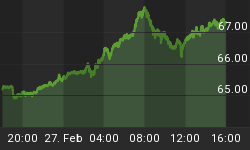When former U.S. President Donald Trump ascended into the Oval Office in January 2017, he kicked off his presidency by investigating unfair trade practices in China as part of his ‘America First’ policy. A year later, he imposed hefty tariffs on a wide range of goods from the Asian nation, sparking outrage and retaliatory tariffs from its trading partners.
Two years later, Washington and Beijing inked the Phase One Trade Deal whereby Beijing committed to import an extra $200 billion worth of American goods over the next two years, including purchasing an extra $52.4 billion of U.S. energy supplies from a baseline of just $9.1 billion in 2017.
But observers who have been hoping that Biden’s administration would mark a return to normalcy on trade issues after the drama of tariff battles and tweet diplomacy of the Trump-era will be sorely disappointed.
Shortly after President Joe Biden ascended into the Oval Office, U.S. trade representative Katherine Tai, was adamant that all American tariffs would stay in place.
And then some: The Biden administration has just added a dozen more Chinese companies to its restricted trade list, citing the same reasons as the Trump administration: National security and foreign policy concerns.
The U.S. has just added eight Chinese firms to the so-called "Entity List" for their alleged role in assisting the Chinese military's quantum computing efforts and acquiring or attempting "to acquire US origin-items in support of military applications". The dreaded entity list has increasingly been used for national security reasons since the previous Trump administration.
This latest move comes as tensions between the two countries continue to escalate over the status of Taiwan amongst other issues. About a week ago, Biden and China’s President Xi held a virtual summit with trade featuring prominently.
Entity List
The US Commerce Department has added a total of 27 new entities to the entity list from China, Japan, Pakistan, and Singapore, with 16 individuals and entities operating in China and Pakistan added to the list due to their involvement in "Pakistan's unsafeguarded nuclear activities or ballistic missile program."
Separately, the U.S. added the Moscow Institute of Physics and Technology to the entity list, although the listing gave no more details other than it had produced military equipment. In effect, this new listing will help prevent American technology from supporting the development of Chinese and Russian "military advancement and activities of non-proliferation concern like Pakistan's unsafeguarded nuclear activities or ballistic missile program,"
The Entity List is a trade restriction list published by the United States Department of Commerce's Bureau of Industry and Security (BIS), consisting of certain foreign persons, entities, or governments subject to U.S. license requirements for the export or transfer of specified items, such as some U.S. technologies. Being included on the Entities List, however, is less severe than being designated a "Denied Person."
Perhaps the most famous company on that list is Chinese smartphone maker Huawei. Two years ago, the Washington Post reported that Huawei was secretly building and maintaining North Korea’s commercial wireless network, providing the country with antennas, base stations and other critical mobile equipment. Further, the company also provided network integration, software and expansion services for North Korean telecoms provider Koryolink.
Huawei certainly is not a stranger to controversy.
The company has repeatedly come under fire for allegedly installing back doors on its mobile gear that allows it to spy on American companies and steal trade secrets. The hostilities have escalated underTrump as the company’s 5G race faced intense backlash.
But most damning were connections between the company and the Beijing government. As Democratic Sen. Chris Van Hollen told Bloomberg TV:
"If Huawei is allowed to dominate the 5G infrastructure of the future around the world, that will compromise our national security interests and those of our allies. "Huawei likes to say it's an independent company, and it's not currently a state-owned entity ... but we all know the reality that at any moment, the government of China can take over Huawei and essentially dictate the terms ... in a way that undermines our national security interests.’’
But it’s not just Washington that has levered spying allegations on the company. Huawei has repeatedly found itself in a familiar bind after being banned by Australia, Japan and New Zealand while Germany, Canada and the EU are considering similar moves.
The Biden administration recently granted Huawei suppliers billions of dollars worth of licenses from November through April that allows them to sell them goods and technology despite their remaining on the U.S. trade blacklist, thanks to a severe semiconductor chip shortage. But the latest moves suggest that the U.S.-China trade war is far from over--it has only metamorphosed into a cold war as Biden continues to strengthen anti-China policies.
















